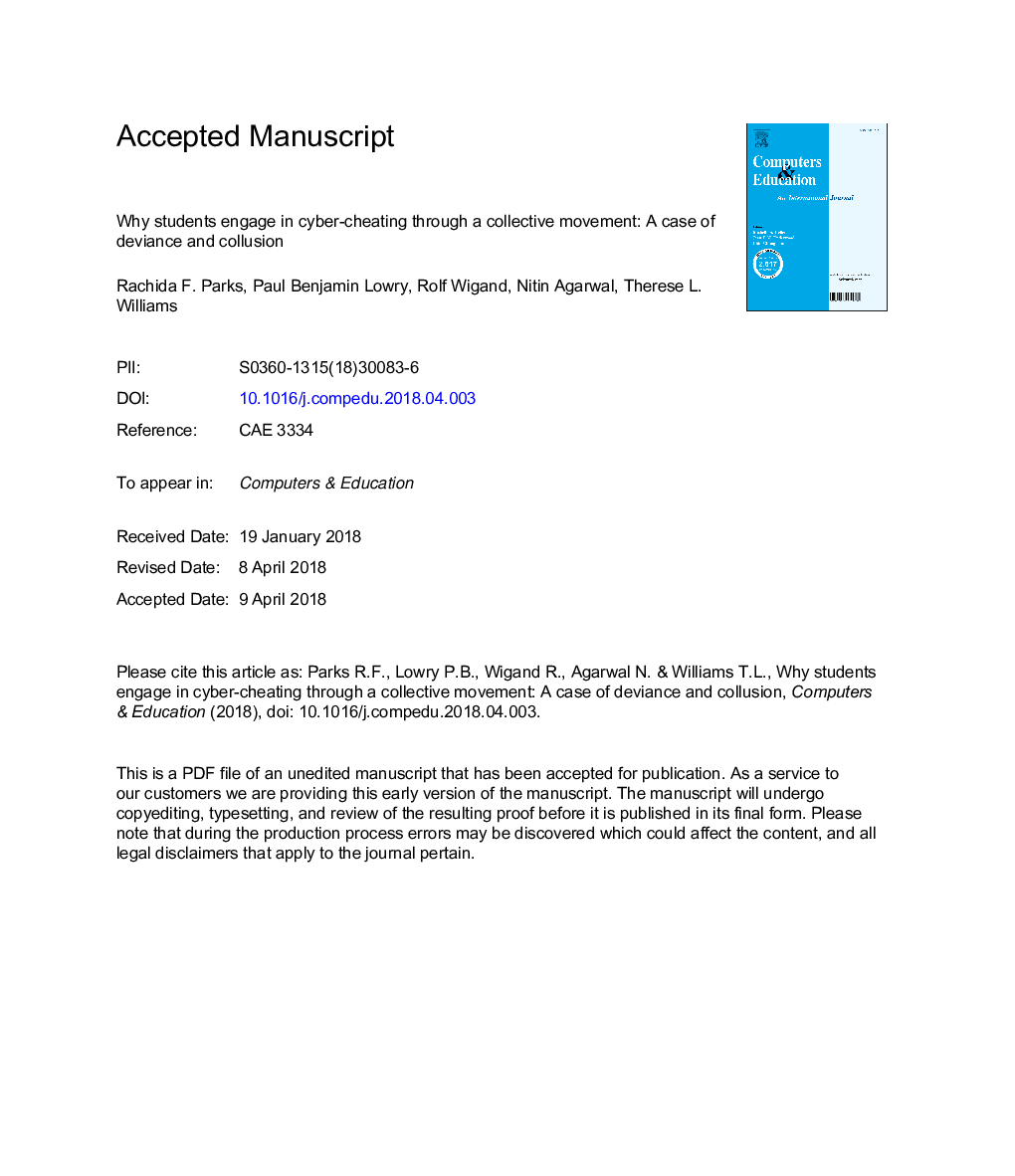| Article ID | Journal | Published Year | Pages | File Type |
|---|---|---|---|---|
| 6834637 | Computers & Education | 2018 | 44 Pages |
Abstract
In this research, we conduct a case study of 'Tasribat', a Facebook page that facilitates cyber-cheating among certain social groups of students in Morocco. Using an interpretive case study approach, we explore why students collectively engage in cyber-cheating. We leverage both interviews as well digital footprints to explore this collective cheating movement on Facebook. We focus on the intertwined relationship between individual and collective cyber-cheating behaviours with an emphasis on ethical and cultural complexity. The paper's major contribution resides in its analysis and conceptualisation through our emerging model-the Collective Action Cyber-Cheating Model-that integrates collective action and social learning theories. We conclude by discussing this study's contributions to research and practice and its associated future research opportunities.
Related Topics
Social Sciences and Humanities
Social Sciences
Education
Authors
Rachida F. Parks, Paul Benjamin Lowry, Rolf T. Wigand, Nitin Agarwal, Therese L. Williams,
